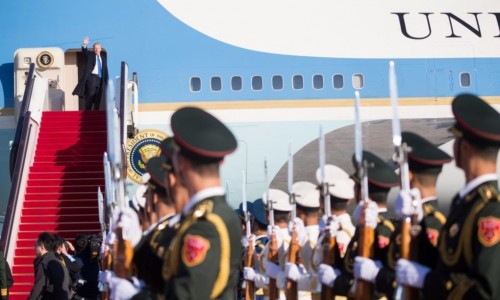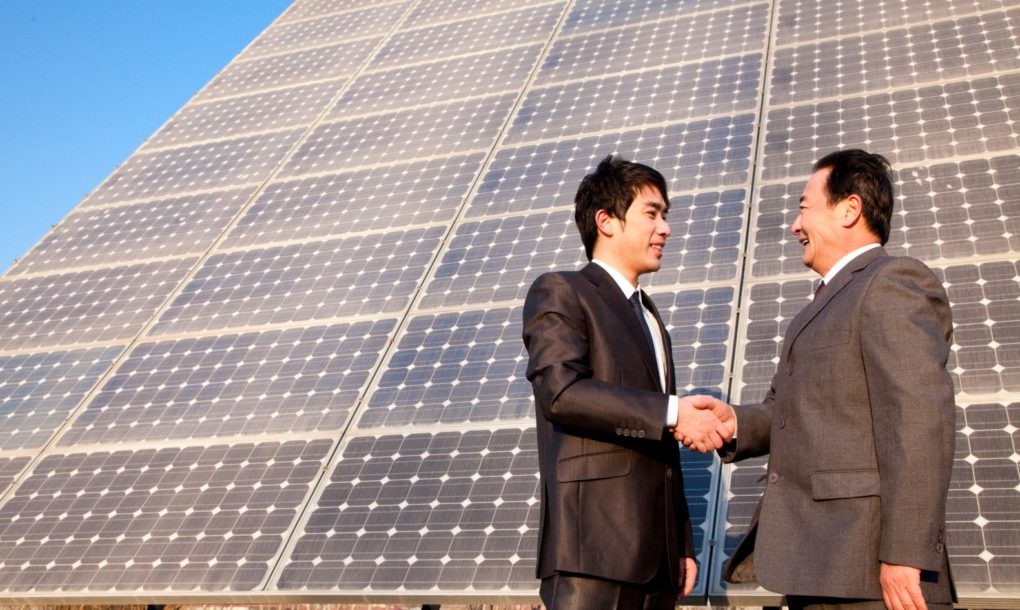RECOMMENDED VIDEOS

Syngas Renewable Energy Diesel Oil - Converting Plastic…
SYNGAS SDN BHD

JinkoSolar : Eagle Series Polycrystalline - PID Free MOdule…
JinkoSolar Co.,Ltd.

EPC contractor & IPP in power plant design & construction
TELEMENIA LTD

Our energy, your way
AGL Energy

SunPower's Superior Solar Panel Performance
SunPower Corporation
Related Stories
The largest solar farm apiary in the US opens this week
The City of London will be powered with 100% renewable energy by October 2018
New study suggests that plastic waste may be transformed into usable energy
Uravu’s zero-electricity Aqua Panels produce gallons of water from thin air
104% of Portugal’s electricity consumption in March came from renewable energy
05 Jan, 2018

Trump’s first big brawl with China may center on solar panels
Renewable Energy & Energy Efficiency | UNITED STATES | 05 Dec, 2017
Published by : Eco Media Asia
The Trump Administration has signaled its intention to take a significantly tougher approach to trade with China, where most of the world’s solar panels are produced. This stance follows President Trump’s campaign promise to protect American jobs from being outsourced to other countries. Due to increasing international competition in the solar industry, at least a dozen solar companies have closed factories in the United States. In response to Chinese domination of the global solar market, the United States had already raised tariffs on solar panels produced in China during the Obama Administration, prompting Chinese solar companies to relocate production to nearby Southeast Asian countries. Now, the Trump Administration may authorize tariffs on all solar panel imports into the United States, potentially raising the cost of solar power for American consumers.

China’s solar industry has undergone an extraordinary transformation over the past decade. Though its contribution to the global solar industry was once relatively insignificant, China now produces more than two-thirds of the world’s solar panels. This economy of scale has enabled the global prices for solar panels to drop by ninety percent, positively contributing to the world’s shift away from fossil fuels and towards the reduction of greenhouse gas emissions. The current conflict in which the Trump Administration seeks to escalate pits American consumers and solar installation companies, which have benefited from cheaper solar panels, and American solar panel producers, which seek to even the playing field with China’s solar industry.
American manufacturers contend that Chinese solar panel production benefits unfairly from state subsidies and low-cost loans backed by government-run banks. These manufacturers “are technically insolvent, but they still get capital,” said Mark Widmar, the chief executive of Phoenix-based First Solar, according to the New York Times. Interfering on behalf of American solar panel manufacturers is not without its risks. If the Trump Administration successfully implements a more expansive tariff system, which could happen as soon as January 2018, it raises the likelihood of retaliation from China and the potential for a broader trade war between the world’s two largest economies.
Article from inhabitat.com
from Greg Beach
